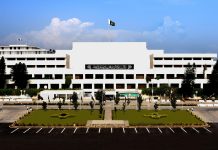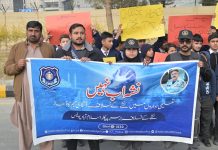By Asim Hussain
ISLAMABAD: Speaker National Assembly Sardar Ayaz Sadiq Wednesday said that the progress, stability, and prosperity of every society is dependent on the provision of justice, equality, and equal development opportunities, without discrimination based on race, religion, or gender.
In his message on World Day of Social Justice, he said, “No nation can embark on the path of true progress without social justice.” He said that Islam teaches the principles of justice, equality, and the protection of fundamental human rights. The Constitution of Pakistan also guarantees every citizen equal justice and equal development opportunities.
The Speaker said that eradicating poverty and gender discrimination, protecting the rights of minorities, ensuring equal opportunities for women, promoting the welfare of marginalized communities, and providing fundamental facilities such as education and healthcare for all citizens are the core principles of social justice.
He added that Parliament is committed to establishing a justice-based system in the country and has introduced several laws to ensure equal rights and opportunities for every individual. He highlighted that Pakistan’s Parliament has undertaken significant legislation to promote social justice, as a system based on justice and equality is the foundation of true democracy and sustainable development.
Deputy Speaker National Assembly Syed Mir Ghulam Mustafa Shah also said that social justice is indispensable for sustainable development and prosperity in any society. He stated that providing equal opportunities to all segments of society, eliminating discriminatory practices, and upholding fundamental rights constitute true social justice.
He said that Pakistan’s Parliament remains at the forefront of fulfilling its responsibilities in this regard and continues to introduce laws aimed at eliminating social injustices.
He urged the public to unite in promoting social justice and play their role in establishing a society where every individual enjoys justice and equal rights without discrimination.






